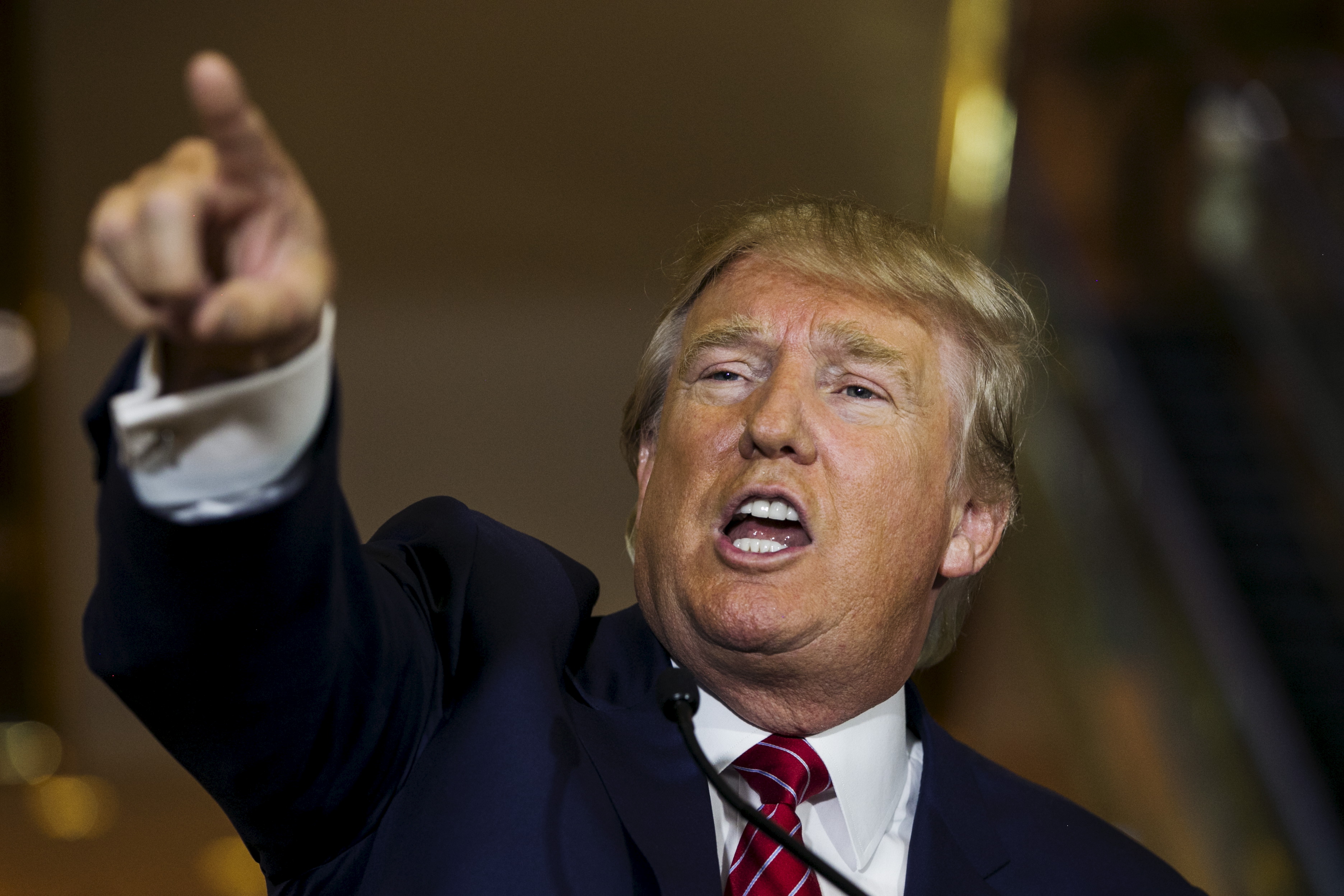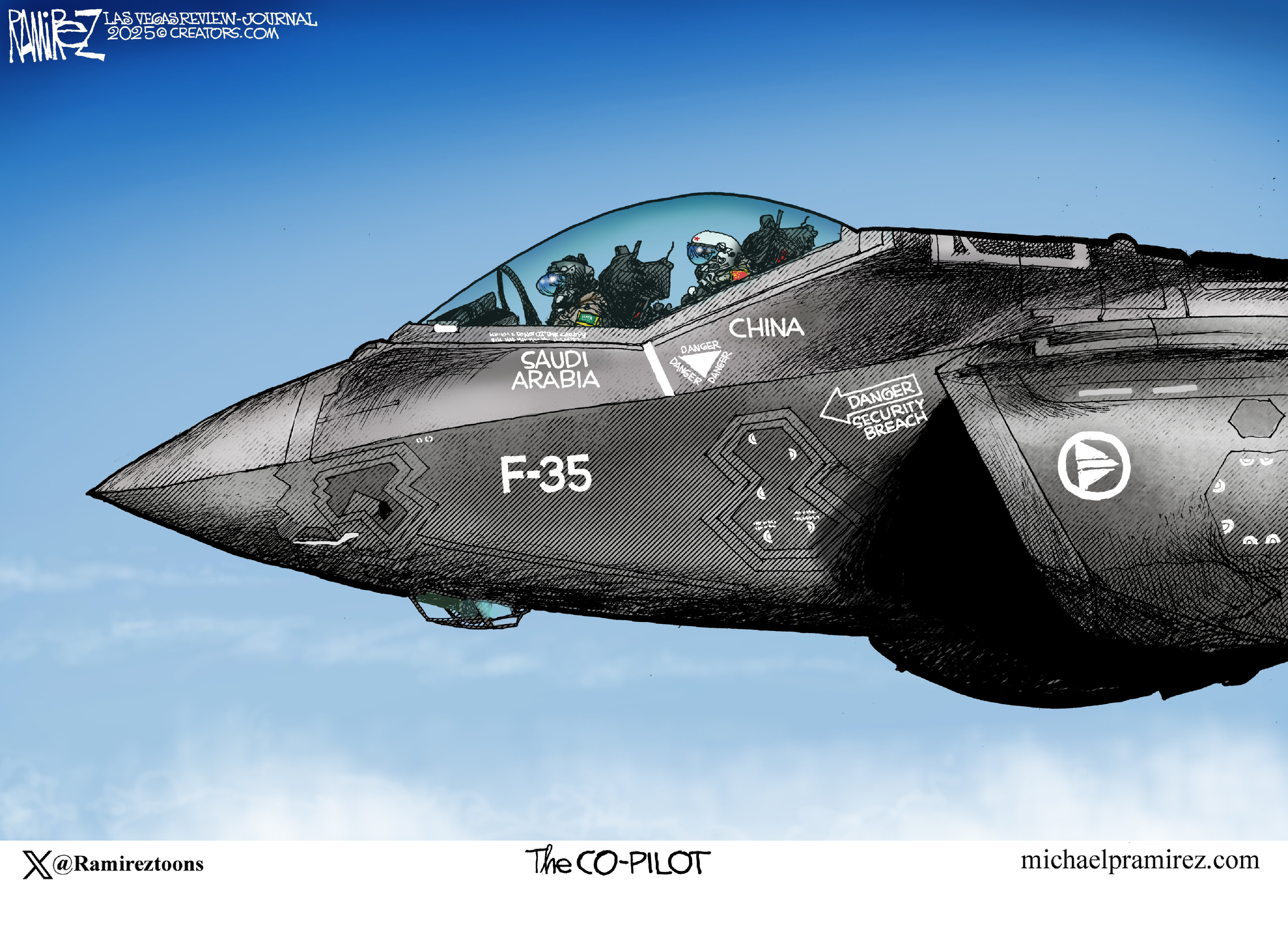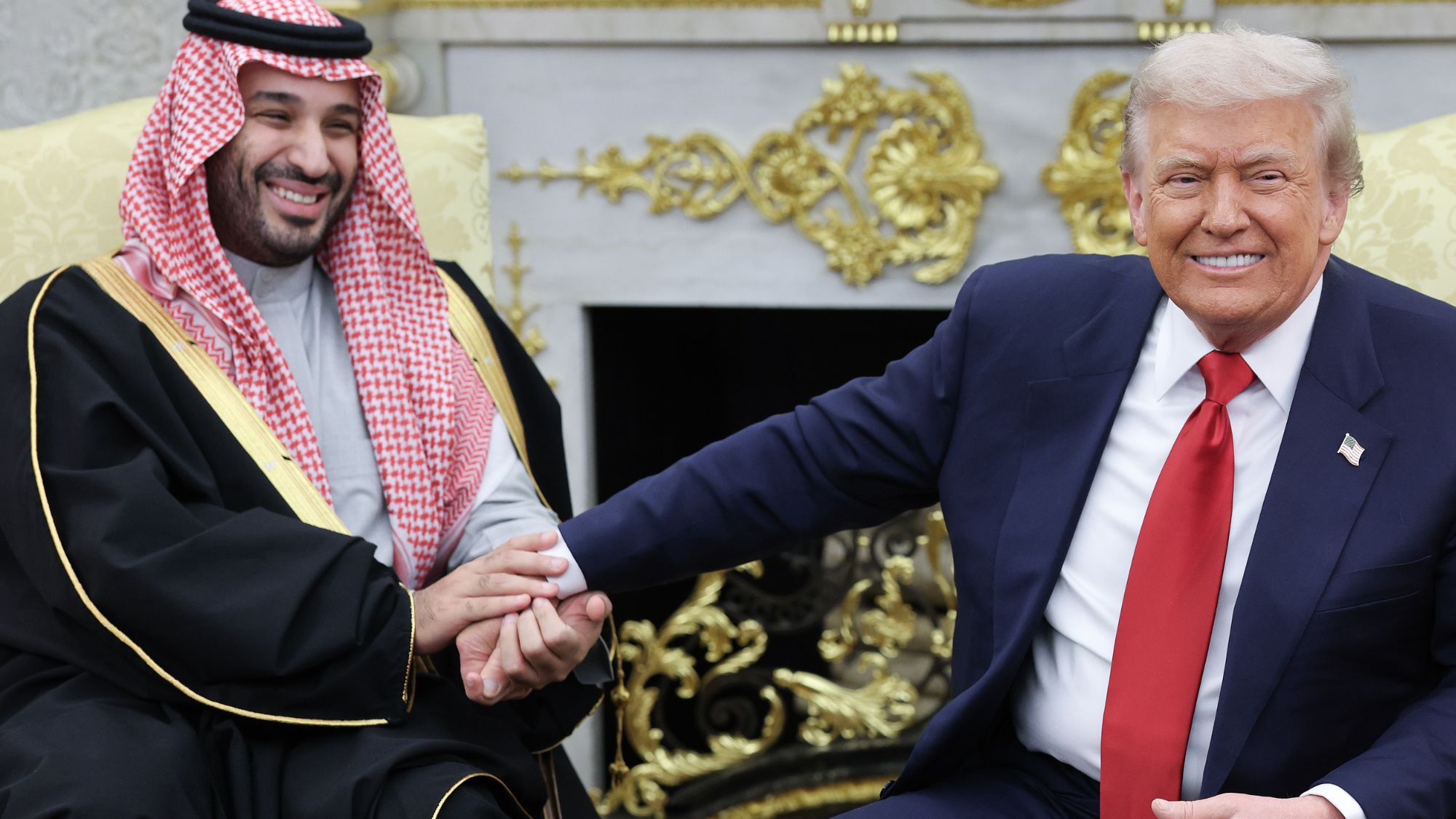Donald Trump, China, and America's economic nationalism problem
Tough talk is meaningless if you don't have a plan to realistically deal with our ever-connected global economy


This summer, political junkies have rediscovered the single greatest force fueling discontent within America's two major parties: economic nationalism.
Donald Trump — in promising to get tough on China, build a wall between the U.S. and Mexico, and more generally "make America great again" — is, of course, the prime example of the moment. But the politics of economic nationalism have long driven insurgent candidacies, from Ross Perot to Pat Buchanan to Newt Gingrich.
Economic nationalists score points with angry populists when they suggest foreign countries are cashing in at America's expense. (Trump: Mexico is "killing us on trade"; NAFTA is a "total disaster.") But rarely, if ever, do they stop to concede how truly vulnerable the U.S. has become to what happens when foreign countries suffer, even if we circle the wagons. And least of all do the economic nationalists countenance how bad things can get even when we're merely the victim of what economists call "knock-on effects" — consequences of consequences. But in our globalized world, that's definitely how it works. Witness the chain reaction of plummeting global markets roiled with fear over China's weakening economy. Or how the world trembled over the eurozone crisis. And so on.
The Week
Escape your echo chamber. Get the facts behind the news, plus analysis from multiple perspectives.

Sign up for The Week's Free Newsletters
From our morning news briefing to a weekly Good News Newsletter, get the best of The Week delivered directly to your inbox.
From our morning news briefing to a weekly Good News Newsletter, get the best of The Week delivered directly to your inbox.
There's no better current example of our worrisome vulnerability than the economic relationship between China and Mexico. Latin America — especially Brazil — has begun to take a beating from China's deep, and likely protracted, economic correction. But Americans should be even more focused on what's unfolding just south of the border.
Just at the moment that Mexicans had reason to hope for a stable resurgence, China's woes have brought back painful memories of the country's 1994 currency collapse. "The value of the peso has plummeted to record lows against the dollar, growth rates have shrunk to dwarfish size, and the only things that seem to be getting bigger are the poverty rate and the gap between rich and poor," The Washington Post reported, noting that the Mexican government's historic auction for oil drilling rights wound up flopping spectacularly. It was a big opportunity to reel in more Chinese investment. But China's Nexen Energy Holdings, one of the few players to make bids, shied away. It was an evil omen. As one Mexican new media bureau chief told me, south of the border, fears of a Chinese meltdown are palpable.
That's because for Mexico, trade with China comes in second only to trade with the U.S., a relationship President Enrique Peña Nieto has been desperate to boost still further. At the height of protests last November over the grisly slaughter of 43 students that had been detained by the government, Peña Nieto hopped a plane to Beijing, the better to cozy up with President Xi Jinping amid the latest Asia-Pacific Economic Cooperation summit. But now, as China stumbles, Peña Nieto has been reduced to relying on symbolic gestures. Just this month, Mexico dutifully accepted China's invitation to contribute 75 troops to its big World War II anniversary parade, widely seen by abstaining Western nations as an excuse to make up for China's economic trouble with a grand display of military strength.
Mexico is even obstructing the Obama administration's full-court press for the Trans-Pacific Partnership — which not only jeopardizes Mexico's NAFTA advantages, but does so to the benefit of China's longtime rival Japan, in an arrangement transparently designed to create a hemisphere-sized economic counterweight to Beijing. Currying favor with the U.S. and China alike is a tough balancing act. But for Mexico, it's essential. North-of-the-border trade isn't enough. Without a healthy China, Mexico may tip toward the abyss.
A free daily email with the biggest news stories of the day – and the best features from TheWeek.com
That would be really bad for America. If you think immigration, wage stagnation, and drug crime are problems in the U.S. now, consider the consequences if China's tanking economy takes down Mexico's, too.
America's economic nationalists need to do more than show how they'd "get tough” with China or Mexico on an individual basis. They need to articulate their response to the much more serious challenge to come if and when those economic dominos begin to topple onto us.
Perhaps it's asking a bit much that economic nationalists, long relegated to the political shadows, spontaneously develop a much more robust and rigorous vision than they've ever needed before. But the fact is, they have little choice — and neither do we. Overlaying the world's economic entanglements is a global financial system that has many vulnerabilities. As our elites double down on that creaky, corrupt regime, Americans are hardly the only ones thirsting for an alternative. It's imperative that someone, somewhere lay out a wise course correction — one that shields citizens from the worst of international finance without indulging a fantasy even more invested in economic vengeance than in economic independence.
Given the profound dysfunction of economies in Europe, Russia, China, and much of the rest of the world, it's more a matter of prudence than jingoism to suggest that this special someone will have to be an American. Ball's in your court, presidential candidates.
James Poulos is a contributing editor at National Affairs and the author of The Art of Being Free, out January 17 from St. Martin's Press. He has written on freedom and the politics of the future for publications ranging from The Federalist to Foreign Policy and from Good to Vice. He fronts the band Night Years in Los Angeles, where he lives with his son.
-
 Political cartoons for November 30
Political cartoons for November 30Cartoons Sunday's political cartoons include the Saudi-China relationship, MAGA spelled wrong, and more
-
 Rothermere’s Telegraph takeover: ‘a right-leaning media powerhouse’
Rothermere’s Telegraph takeover: ‘a right-leaning media powerhouse’Talking Point Deal gives Daily Mail and General Trust more than 50% of circulation in the UK newspaper market
-
 The US-Saudi relationship: too big to fail?
The US-Saudi relationship: too big to fail?Talking Point With the Saudis investing $1 trillion into the US, and Trump granting them ‘major non-Nato ally’ status, for now the two countries need each other
-
 Has Zohran Mamdani shown the Democrats how to win again?
Has Zohran Mamdani shown the Democrats how to win again?Today’s Big Question New York City mayoral election touted as victory for left-wing populists but moderate centrist wins elsewhere present more complex path for Democratic Party
-
 Millions turn out for anti-Trump ‘No Kings’ rallies
Millions turn out for anti-Trump ‘No Kings’ ralliesSpeed Read An estimated 7 million people participated, 2 million more than at the first ‘No Kings’ protest in June
-
 Ghislaine Maxwell: angling for a Trump pardon
Ghislaine Maxwell: angling for a Trump pardonTalking Point Convicted sex trafficker's testimony could shed new light on president's links to Jeffrey Epstein
-
 The last words and final moments of 40 presidents
The last words and final moments of 40 presidentsThe Explainer Some are eloquent quotes worthy of the holders of the highest office in the nation, and others... aren't
-
 The JFK files: the truth at last?
The JFK files: the truth at last?In The Spotlight More than 64,000 previously classified documents relating the 1963 assassination of John F. Kennedy have been released by the Trump administration
-
 'Seriously, not literally': how should the world take Donald Trump?
'Seriously, not literally': how should the world take Donald Trump?Today's big question White House rhetoric and reality look likely to become increasingly blurred
-
 Will Trump's 'madman' strategy pay off?
Will Trump's 'madman' strategy pay off?Today's Big Question Incoming US president likes to seem unpredictable but, this time round, world leaders could be wise to his playbook
-
 Democrats vs. Republicans: who are US billionaires backing?
Democrats vs. Republicans: who are US billionaires backing?The Explainer Younger tech titans join 'boys' club throwing money and support' behind President Trump, while older plutocrats quietly rebuke new administration
